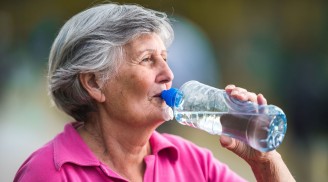Water is essential for our health and well-being, but many older adults do not drink enough of it. Dehydration may cause serious problems such as urinary tract infections, constipation, confusion, and falls. Here are some tips for encouraging hydration in older adults, getting older adults to drink more water. Make water more accessible and appealing Keep a pitcher of water in the fridge or on the counter, and offer a glass of water with every meal and snack. You can also add flavor to water with lemon, cucumber, mint, or berries. Monitor the color and amount of urine A pale …
Balance is essential for everyone, especially older adults at risk of falls and injuries. Improving your balance can help you feel more confident and stable, prevent falls and fractures, and enjoy daily activities. Here are five exercises you can do at home to improve your balance and stay active and healthy. These simple exercises can improve balance and mobility, reducing the risk of falls. Do them at least three times a week or more if you feel comfortable. You can also make them more challenging by adding weights, closing your eyes, or making them faster or slower. Make sure you …
The brain is the most vital and complex organ in the human body, requiring proper nutrition to function optimally. What we eat can affect our cognitive abilities, mood, memory, and even our risk of developing neurodegenerative diseases. Here are some of the best foods for a healthy brain and why they are beneficial. Berries Berries are packed with antioxidants in high levels protecting the brain against oxidative stress. They also contain flavonoids, enhancing neuron communication and improving learning and memory. Some of the best berries for brain health are blueberries, strawberries, raspberries, and blackberries. Nuts and seeds Nuts and seeds …
Meals and nutrition are important aspects of assisted living facilities. These facilities aim to provide balanced and nutritious meals to residents while accommodating individual dietary preferences and needs. Here’s a closer look at how meals and nutrition are managed in assisted living: Meal Planning: Assisted living facilities typically have dedicated chefs or dietary staff who plan and prepare meals that meet the nutritional needs of older adults. Menus are often designed to provide a variety of foods that are both delicious and nourishing. Nutritional Balance: Meals are designed to be well-balanced, providing essential nutrients such as vitamins, minerals, protein, carbohydrates, …
Assisted living is a residential care facility designed to provide seniors with a supportive living environment that promotes independence while offering assistance with activities of daily living (ADLs) and other services. Assisted living is particularly suitable for older adults who can no longer live independently, but they do not need the level of medical care that provides a nursing home. Here are some key features of assisted living:





